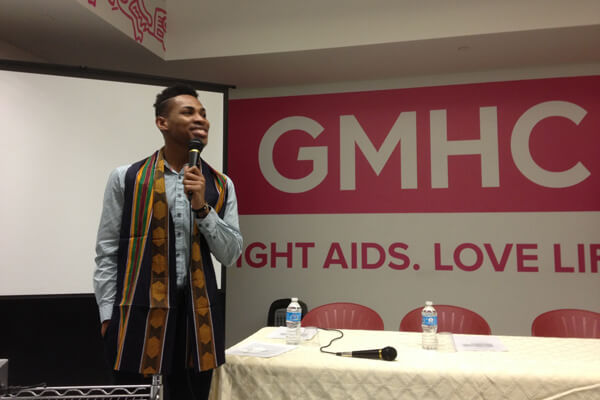An anesthesiologist and a military doctor who was hailed as the first out transgender military officer in the Army were charged with allegedly attempting to feed secret health-related information about the US military to the Russian government, according to a federal indictment announced on September 29.
Married couple Jamie Lee Henry, a Fort Bragg military doctor with secret-level security clearance, and Anna Gabrielian, an anesthesiologist at John Hopkins in Baltimore, contacted the Russian embassy and offered to turn over secret information to the Kremlin in the midst of Russian President Vladimir Putin’s invasion of Ukraine, according to the feds. Combined, they are facing eight counts, including conspiracy and disclosing individually identifiable health information.
A 2015 Buzzfeed News article described Henry, 39, as the first known active out trans officer in the Army and featured an interview in which Henry discussed coming out as trans. While that same article referred to Henry as a trans woman, the press release issued by the Justice Department on September 29 described Henry with male pronouns and a spokesperson for the Department of Justice told Gay City News that Henry used male pronouns during interactions with an undercover officer and in court on September 29. On Twitter, Henry self-identifies as a transgender military physician.
Henry’s attorney, David Walsh-Little, did not respond to an email on September 29 and a call was not immediately returned.
Gabrielian, 36, took the lead in reaching out to the Russians and spoke on behalf of the couple, according to the feds.
On August 17, months after contacting the Russian Embassy, Gabrielian allegedly went to a Baltimore hotel to meet an undercover FBI agent who pretended to be a Russian official. The undercover agent asked Gabrielian if she still had interest in aiding the Kremlin, according to prosecutors, and she conveyed her patriotism for Russia by insisting that she was determined to help — even if such a move would lead to her termination or incarceration.
Still, the couple sought to conceal their tracks during communications with the official. Gabrielian discussed cover stories, expressed a need for “plausible deniability,” and used code words in text messages with the undercover agent, prosecutors say.
The agent said Gabrielian offered to have the couple assist Russia “by demonstrating” that they could access and provide military health information to the Russian government from Fort Bragg and other locations and that they could potentially help the Russian government “gain insights into the medical conditions associated with the US government and military, to exploit their information.”
Gabrielian further told the undercover agent that Henry — as an Army officer — would be able to provide more useful information, “including on how the US military establishes an army hospital in war conditions and about previous training the US military provided to Ukrainian military personnel,” the indictment states.
Meanwhile, Henry, who joined Gabrielian in a subsequent meeting with the undercover officer later in the day on August 17, allegedly “looked into” volunteering for the Russian Army following the start of the invasion, but was deterred because Russia sought troops with “combat experience.”
“The way I am viewing what is going on in Ukraine now, is that the United States is using Ukrainians as a proxy for their own hatred toward Russia,” Henry said, according to the feds.
“My point of view is until the United States actually declares war against Russia, I’m able to help as much as I want,” Henry said, per the indictment. “At that point. I’ll have some ethical issues I have to work through,” Henry said.
The couple appeared to have differences regarding their willingness to divulge sensitive medical information in violation of the law. On August 24, Gabrielian met with the undercover officer yet again — this time alone — and called Henry a “coward” who had concerns about violating HIPAA law, feds allege. In contrast, Gabrielian did not share that concern and admitted to running afoul of HIPAA “all the time.”
On the final day of August, the undercover agent met with Gabrielian and Henry at a hotel in Gaithersburg, Maryland, where Gabrielian handed over medical information for a spouse of a Naval Intelligence employee as well as a veteran of the US Air Force. The indictment said Gabrielian explained that the spouse of the Naval Intelligence employee had a health issue that the Russians “could exploit.” Henry also handed over numerous records, including for a retired Army officer, a Defense Department employee, a US Army veteran’s spouse, and the spouses of two dead Army veterans.
SPARTA, which is a non-profit advocacy group for trans service members in the US, issued a written statement saying the organization “is saddened to learn” about Henry’s arrest.
“Their alleged actions are those of an individual and should not be taken as a representation of transgender people broadly or transgender members of the military specifically,” the group added. “All people in the United States are entitled to the same rights, including due process and the presumption of innocence in this case. SPARTA does not condone any actions alleged in the indictment and expects the process to play out fairly and equitably as it would for anyone accused of a crime.”
Some of Henry’s most recent social media posts on Twitter were related to the war in Ukraine. Henry retweeted a post on July 26 about the US approving treatment of wounded Ukrainian soldiers, but two posts from June 30 are particularly notable in light of the indictment: One post highlights a New York Times article describing Russian President Vladimir Putin as “patient and confident” and another one highlights a piece criticizing western sanctions on Russia.



































